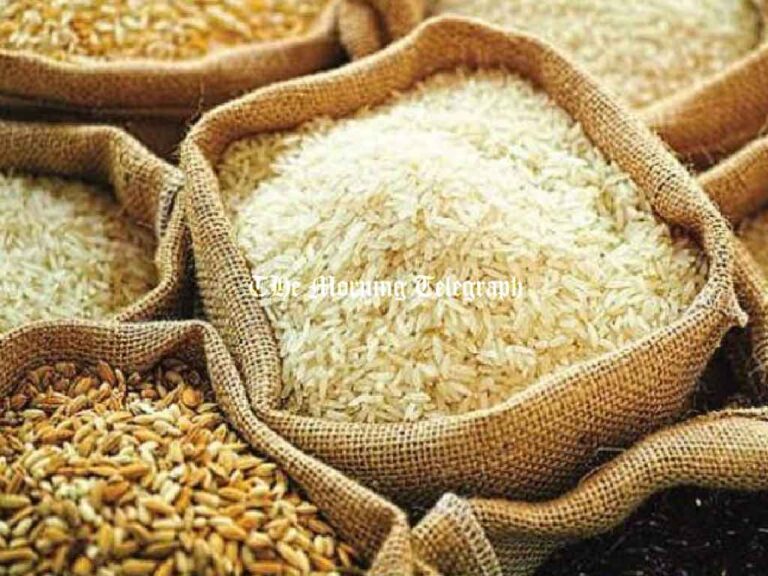
Sajeewa Chamikara, a key figure in the Land and Agricultural Reform Movement, has strongly condemned a statement made by Minister of Agriculture, Livestock, Lands, and Irrigation, K.D. Lal Kantha, which suggested that farmers have the right to take any action against wild animals that damage crops. Chamikara argues that this statement is not only misleading but also promotes illegal activities, potentially leading farmers to break the law.
In his detailed response, Chamikara emphasizes that the Minister’s suggestion violates Sri Lanka’s Wildlife Protection Ordinance, particularly sections dealing with the illegal methods of controlling wild animals. According to the Wildlife Protection Ordinance No. 02 of 1937, amended by Act No. 07 of 2022, it is unlawful to use poison, explosives, or any intoxicants to kill or harm wild animals. Additionally, it is illegal to use artificial lights or bait to deceive animals into capture. The penalties for such actions can include fines between Rs. 15,000 and Rs. 30,000 or imprisonment for 1 to 2 years, or both. Chamikara stresses that by endorsing such actions, Minister Lal Kantha is inciting farmers to break the law, and he calls for legal action to be taken against the Minister under Section 59 of the Wildlife Protection Ordinance.
Furthermore, Chamikara criticizes the Minister for making such statements within the legislature, a platform that is supposed to uphold the law. He claims that these actions undermine the government’s stated efforts to build a civilized society, promote rule of law, and foster a progressive, democratic nation, as promised in the “A Rich Country, a Beautiful Life” policy that the current government made with the people. The Minister’s comments, Chamikara believes, contradict these very objectives and risk eroding the public trust in the government’s commitment to enforcing the law.
Root Causes of Wild Animal Encroachment
Chamikara also points out that the issue of wild animals damaging crops is not purely a matter of wildlife behavior, but one deeply connected to human-induced environmental changes. He attributes the increasing presence of wild animals on farmland to the destruction and fragmentation of natural habitats caused by development activities such as commercial plantations, urban expansion, and the establishment of non-native forest plantations. These activities reduce the availability of natural food sources and shelter for wildlife, pushing them into cultivated lands in search of resources.
Moreover, Chamikara highlights that invasive plant species and monoculture farming practices have further exacerbated the problem by displacing native flora and fauna. These changes, he argues, have led to the overpopulation of certain wild animals like wild boars, peacocks, and monkeys, which then damage crops. He contends that the real issue lies in the way human development is encroaching on the natural habitats of these animals, making them more likely to invade farmland.
Legal Protections for Certain Wild Animals
According to the Wildlife Protection Ordinance, some animals that damage crops, such as wild boars, rabbits, and certain birds, are classified as “unprotected” species and can be controlled under specific conditions. However, even in these cases, the law mandates that only licensed firearms can be used for control, and farmers are prohibited from using poison, traps, or other illegal methods. Chamikara calls for a review of this legislation, proposing that animals like the peacock, which cause significant damage to crops, be added to the list of unprotected species, while some animals, like the grey marten, which do not contribute much to crop damage, should be removed.
Government’s Environmental Policy and the Minister’s Disregard for It
Chamikara also draws attention to the inconsistency between the Minister’s statement and the government’s own environmental policy outlined in the “A Rich Country, a Beautiful Life” framework. The policy’s section on “A sustainable biosphere, an evergreen life” clearly emphasizes the importance of biodiversity conservation and sustainable environmental practices. Chamikara argues that Minister Lal Kantha’s statement undermines these goals, as it encourages short-sighted solutions like culling wild animals rather than addressing the deeper environmental issues causing crop damage.
In addition, Chamikara references the National People’s Power’s (NPP) policy, which includes studying the population growth of wild animals and developing biological methods to control them. He expresses concern that the current government’s approach, under Minister Lal Kantha, will ignore these progressive ideas and revert to outdated, harmful methods that ignore the broader environmental context.
The Real Challenges of Farming
Beyond wild animal control, Chamikara underscores that the real challenges facing Sri Lankan farmers are much broader and require more comprehensive solutions. These challenges include the increasing dependency on agrochemicals, the water crisis, the displacement of small farmers due to large-scale commercial agriculture, market monopolies, post-harvest losses, and the impact of unnecessary food imports. He argues that the government’s focus on wild animals as the primary cause of farming problems is a diversion from these deeper, more systemic issues.
Chamikara advocates for a more holistic approach to agriculture, one that considers the interrelationship between farming, the environment, and the economy. He stresses that while wild animal control might be part of the solution, it should not be the primary focus. Instead, the government should address the root causes of environmental degradation, support sustainable farming practices, and protect the livelihoods of farmers in a way that does not harm the ecosystem.
A Call for a Biocentric Approach to Agriculture
Chamikara concludes by calling for a shift in perspective, urging that agriculture be viewed from a biocentric, rather than an anthropocentric, standpoint. He emphasizes that wild animals play an essential role in maintaining the balance of ecosystems and that the focus should be on preserving biodiversity while ensuring the sustainability of farming practices. He criticizes the Minister’s statement as short-sighted and urges the government to adopt policies that support both farmers and the environment in the long term.
In closing, Chamikara warns that the Minister’s statement reflects a broader issue of governance where, instead of addressing real challenges, the government seeks easy scapegoats like wild animals. He calls for a more thoughtful and progressive approach to agriculture, one that balances the needs of the environment, farmers, and the economy.




